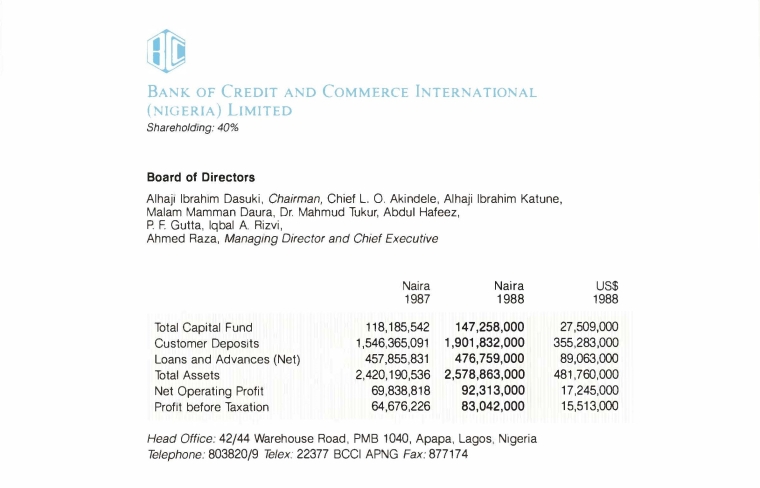From the beginning BCCI viewed Nigeria as country presenting many opportunities for business and growth. After initially having a representative office, BCCI went on to establish a joint venture bank in 1979, with a first branch in Lagos, Nigeria.
Country information
Nigeria, officially the Federal Republic of Nigeria, is a multi-ethnic and culturally diverse federation of autonomous states and the Federal Capital Territory where the capital Abuja is located. Lagos, the former capital until 1991, retained its position as the country’s leading commercial and industrial city.
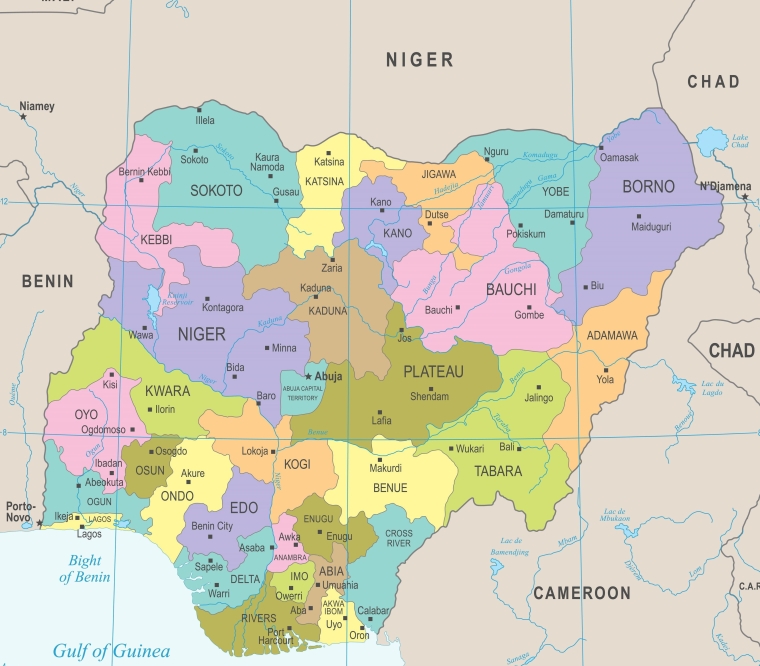
The country is located on the western coast of Africa. It is bordered to the north by the Niger, to the west by Benin, to the east by Chad and Cameroon which shares the eastern borders right down to the Gulf of Guinea opening into the Atlantic Ocean.
Nigeria had a diverse geography, with climates ranging from arid to humid equatorial.
History
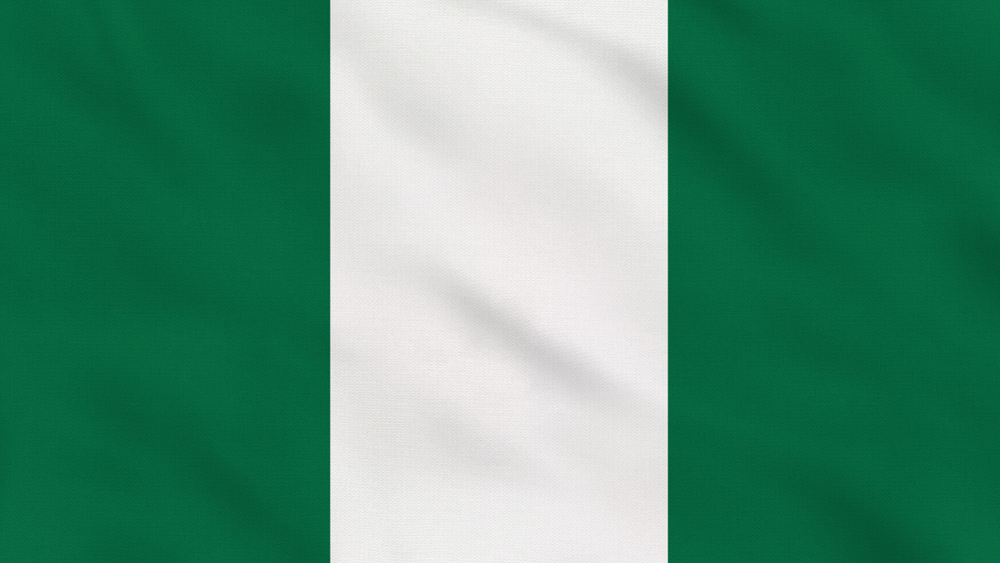 Modern Nigeria dates from 1914, after Northern and Southern Nigeria were colonised by the British. The country became independent on 1 October 1960.
Modern Nigeria dates from 1914, after Northern and Southern Nigeria were colonised by the British. The country became independent on 1 October 1960.
Nigeria's importance to BCC was also the concern of Mr Agha Hasan Abedi, BCC President, about the position of the Third World. Since independence, Nigeria was constant in calls for eradication of all forms of colonialism throughout the continent of Africa.
Nigeria is Africa’s most populous country with an 800km of coastline offering the potential a maritime power and the large land area of 923,768 sq. km for agricultural, industrial and commercial activities.
Population and language
Nigeria’s most diverse feature is its people. The population was 71.36 million in 1979 when BCCI started operations in Nigeria.
The primary languages spoken in Nigeria were Hausa, Yoruba, and English.
The official language was English.
Economy
The Nigerian economy was one of the largest in Africa. Since the late 1960s it was based primarily on the petroleum industry.
A series of world oil price increases from 1973 produced rapid economic growth in transportation, construction, manufacturing, financial and government services.
Nigeria, in addition to its oil exploration, was endowed with significant agricultural, mineral, marine and forest resources. Much of the population was involved in the production of the food crops such as cassava, maize, rice, yams, various beans and legumes, soya, sorghum, ginger, onions, tomatoes, melons and vegetable. The main cash crops are cocoa, cotton, groundnuts, oil palm and rubber.
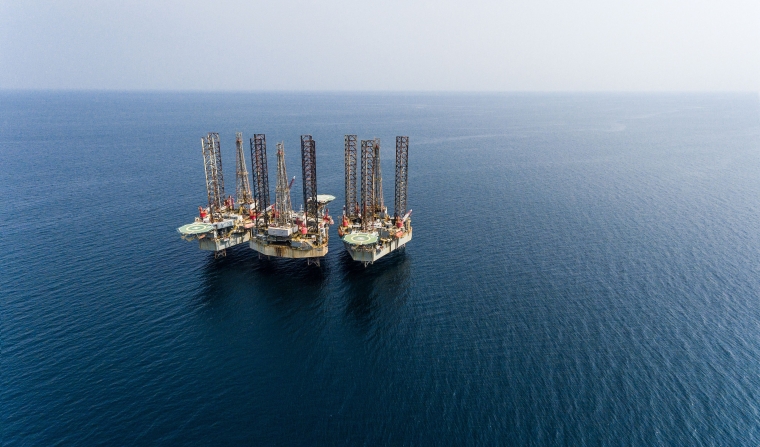
The country also became dependent on increased imports of raw materials with the establishment of capital-intensive industries such as steel mills, pulp and paper mills and petrochemical plants.
Nigeria's main exports were crude oil, petroleum products, cocoa, palm kernels and oil, tin and rubber.
The country's important imports were machinery, motor vehicles, food, chemicals, iron and steel, textile yarn and fabrics, petroleum products, cement and paper.
Coming of BCCI to Nigeria
Mr Qaiser Raza, senior executive deputed by BCCI central office in London, United Kingdom was first asked to visit Nigeria in September of 1976 to take a look at potential for BCCI to expand its presence in West Africa, Monrovia, Ghana, Liberia. With the increasing size of Nigeria’s economy, BCCI understood the potential of having a major banking presence to handle a share of country's foreign trade.
After independence in 1960 the Nigerian financial sector was essentially dominated by a number of foreign banks. They were alleged to favour their foreign shareholders rather than caring for Nigerians and the Nigerian economy. This was followed in subsequent years in the 1970s by the establishment of commercial banks by the state governments and the entry of merchant banks mostly as joint ventures between foreign investors and the Federal Government and/or private investors.
A rural banking programme was initiated in 1977. Under the scheme, commercial banks were directed to establish a given number of branches in the rural areas over the following decade. The sole aim was to mobilise the financial resources of the rural areas, promote banking habit, attract cash held in the rural areas to the banking system in order to enhance the effectiveness of monetary policy and extend credit to the rural areas.
%20(2).png)
BCCI first set up a representative office in Lagos, Nigeria in late 1977 to secure local partners for a joint venture bank and pursue a banking licence through the Central Bank of Nigeria
Over the following months, BCCI gathered Nigerian investors to take 60% shareholding in a new bank venture in Nigeria, with 40% shareholding held by BCCI. The bank named Bank of Credit and Commerce International (Nigeria) Limited (BCCI Nigeria) would be under the management of BCCI.
On 8 March 1979 BCCI lodged an application with the Central Bank of Nigeria for a Nigerian banking licence and received a banking permit and operating status after eight months requiring that the new bank BCCI Nigeria should also establish its branches in rural areas.
BCCI Nigeria was incorporated on 5 Aug 1979 with the primary objective:
To carry on in Nigeria and other parts of the world the business of banking in all its aspects and to transact and do all matters and things incidental thereto, or which may at any time hereafter, at any place where the company carries on business be used in connection with the business of banking or dealing in money or securities for money.
BCCI continued operating its Lagos representative office at:
39/40B Tawafa Balewa Square
P.O. Box 127763
Lagos
Telephone (2341) 636278 / 637195
Telex: 26545 BCCI NG NC
The Lagos representative office assisted BCCI Nigeria in liaising with BCCI global network and also Nigerian High NetWorth Individuals maintaining their accounts with BCC branches outside Nigeria.
BCCI Nigeria
BCCI Nigeria opened its first branch in Apapa, Lagos, the commercial and financial centre, and chief port of Nigeria, and started operating on 20 November 1979, offering a full range of domestic and international banking services including foreign exchange transactions.
The branch initially started with Mr Qaiser Raza deputed as the first Managing Director by BCC central office, London, and two Nigerian staff.
.jpg)
With BCCI Nigeria the first bank to have made a profit in the first year of operations, it was a sign of the growing confidence that Nigerian people placed in the BCC group.
Apart from winning new clients, BCCI Nigeria took away accounts of multinationals from other foreign banks by bold marketing initiatives focusing on profitable short-term self-liquidating finance for transactions involving of foreign trade as well as local trade in rural areas.
In a fast-growing BCCI Nigeria handled export letters of credited received from other BCC branches, and requests for issuing guarantees and performance bonds for various development projects.
BCCI's emphasis on client relationships secured the accounts wealthy Nigerians individuals and many local businesses.
With recruitment of fresh graduates and providing bank training to staff in the Third World, BCCI was also seen as champion in developing the skills and confidence of Nigerians to handle international transactions and finance international trade at important branches. Many were appointed to senior positions including branch managers. This was instrumental in BCCI winning the trust of the Central Bank of Nigeria and government officials.
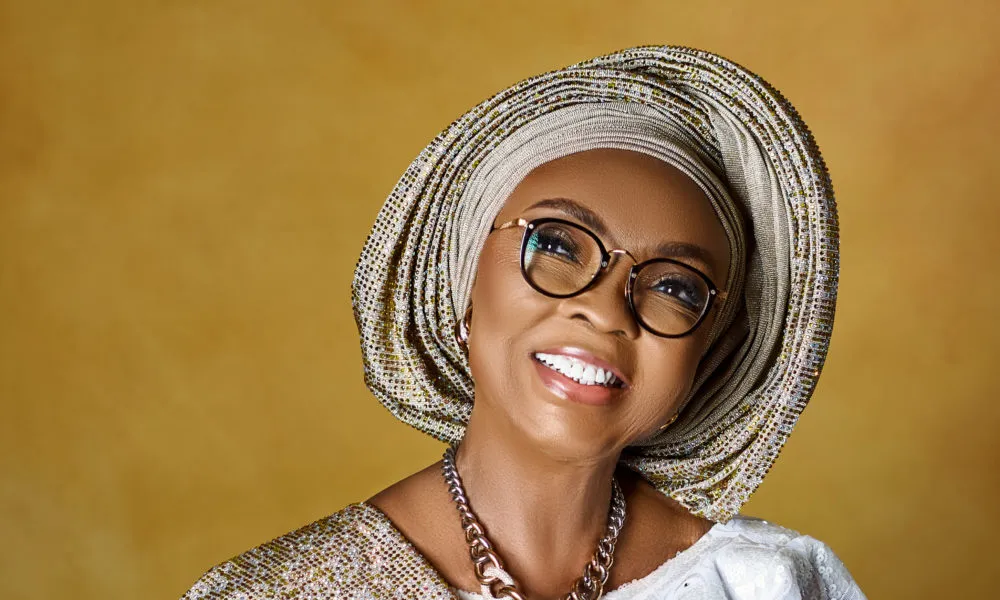
An example of BCCI's strategy of developing international bankers from the Third World, was Ms Rose Okwechime. She started her banking career in 1971 with the Bank of England and joined BCCI Nigeria in 1981. She was promoted to an executive management position which she held for ten years from Assistant Manager, Operations Manager to Principal Manager and becoming the corporate banking unit head. She went on to establish her own bank in Nigeria. (Business Elites Africa 14 June 2022: How Rose Okwechime Went from Banking Staff to Legend in Nigeria).
The number of BCCI Nigeria branches in the rural areas also steadily increased and BCC staff grew to 200 of which all but 20 were Nigerians.
To streamline the accounting system and provide instantaneous service to customers BCC introduced on-line computer terminals with video screens in all branches in Nigeria.
_0.jpg)
BCCI NIGERIA BRANCHES
State | City | Town | Village
Federal Territory
Abuja (administrative and political capital of Nigeria)
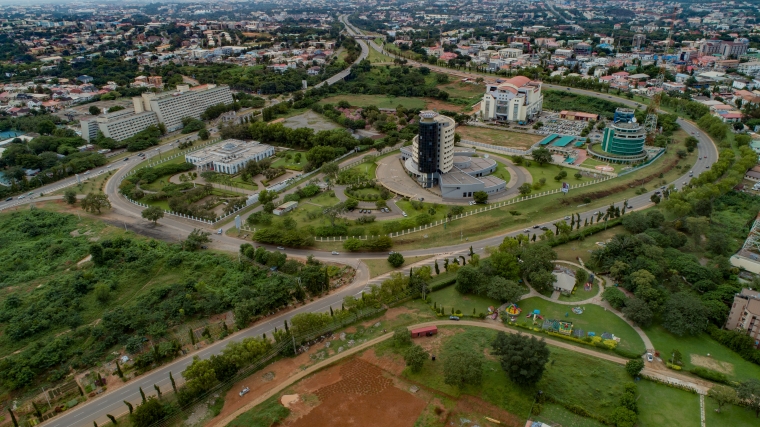
The Federal Capital Territory, in the central part of Nigeria, was the administrative territory of Nigeria that was created in 1976, and was not a state. Abuja became Nigeria's administrative and political capital, replacing Lagos in 1991.
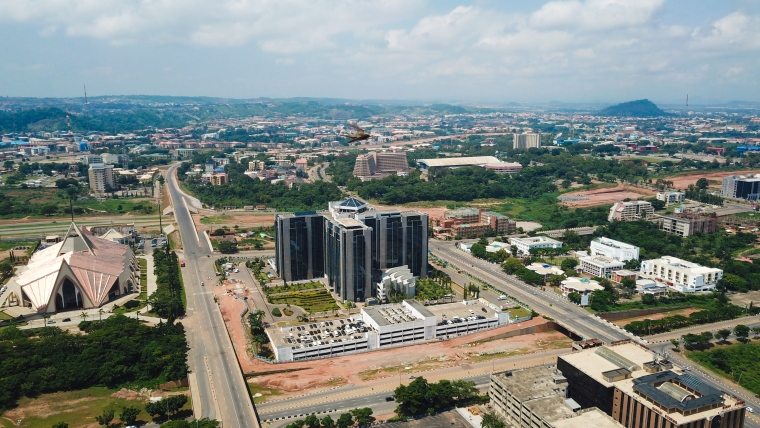
AKWA-IBON STATE
Nnung-Udoe, Uyo (state capital and local trade centre for agricultural products)
Akwa-Ibom State, southeastern Nigeria. The economy was based mainly around the production of crude oil and natural gas. Uyo, the state capital, it was said to be the most beautiful city in Nigeria.
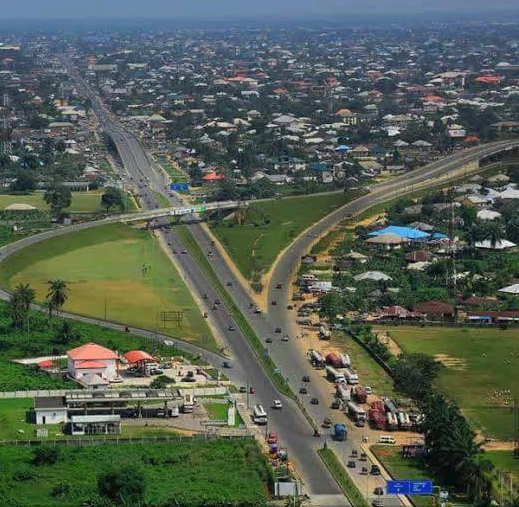
ANAMBRA STATE
Enugu (capital, later capital of Enugu state created in 1991)
Odekpe (village)
Okija (large town)
Onitsha (major commercial city)
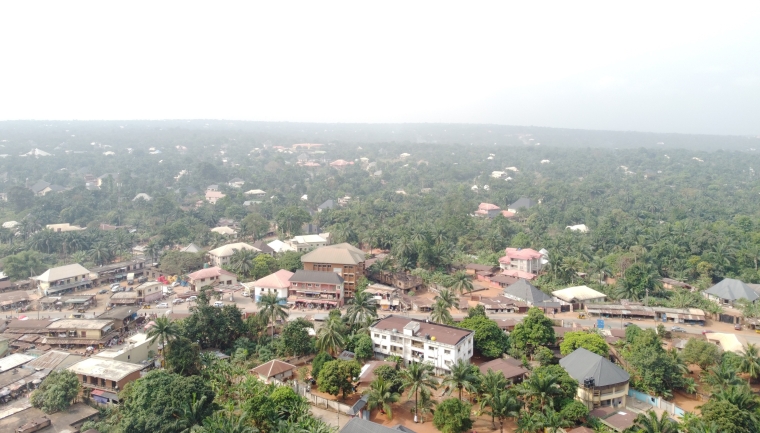
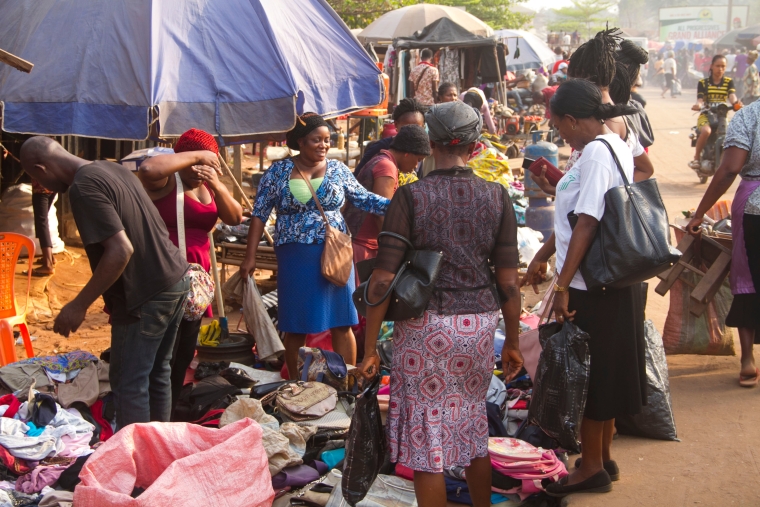
Anambra State, east-central Nigeria, part of which became Enugu state in 1991. Agriculture played an important role in the state’s economy; yams, taro, oil palm products, rice, corn (maize), cassava (manioc), and citrus fruits were the principal crops. Lead, zinc, and lignite were mined in the southern part of the state, and petroleum and natural gas were also extracted. Industries included textile and vehicle manufacturing.
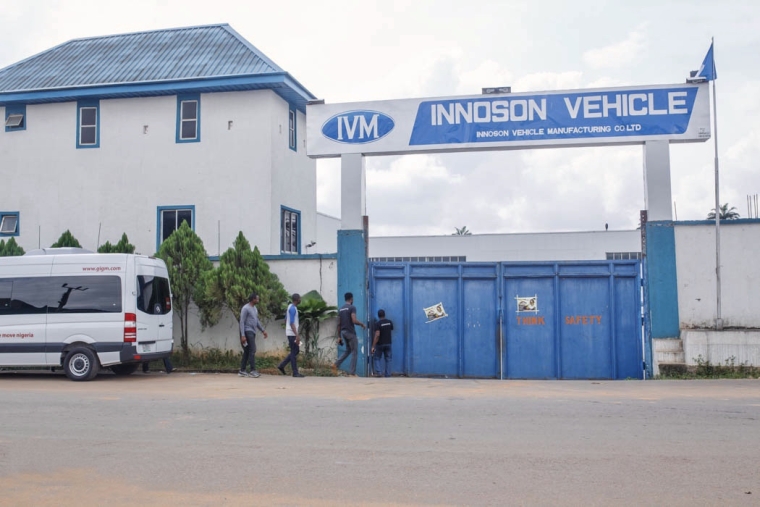
BAUCHI STATE
Bauchi main branch
Azare (town)
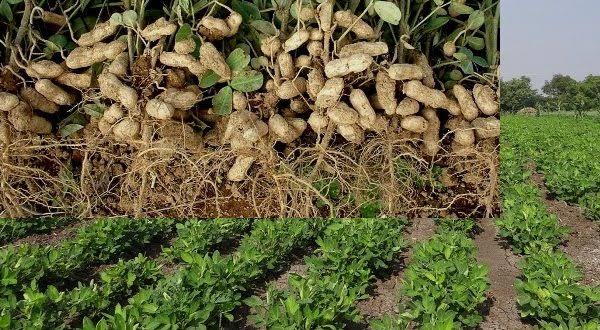
Bauchi State, northeastern Nigeria. Agriculture dominated the economy. Bauchi was one of the country’s main cotton-producing states; coffee and peanuts (groundnuts) were the other cash crops. Alluvial tin and columbite mining provided minerals for export; cassiterite, coal, limestone, iron ore, antimony, and marble were abundant mineral resources. The state’s industries included meat-products processing and canning, peanut processing, vegetable-oil milling, and cotton ginning.
BENDEL STATE
Abavo, Agbor (town, included in Delta State created in 1991)
Benin (state capital and major commercial city, centre of Nigeria's rubber production)
Effurun (town, also serves as an entrance to Warri, the commercial and capital of Delta State and a hub for petroleum activities in southern Nigeria)
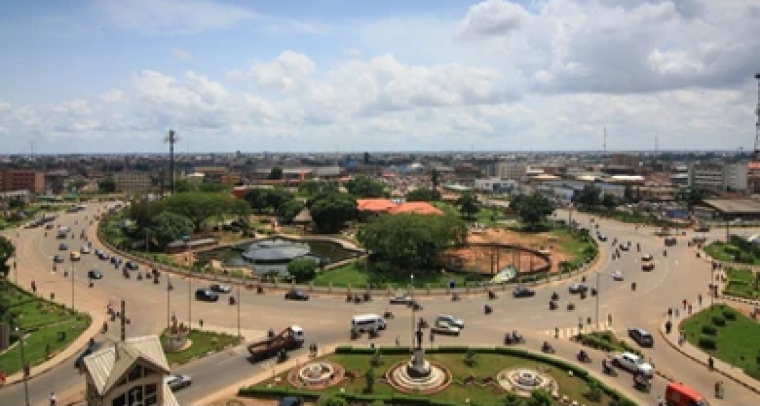
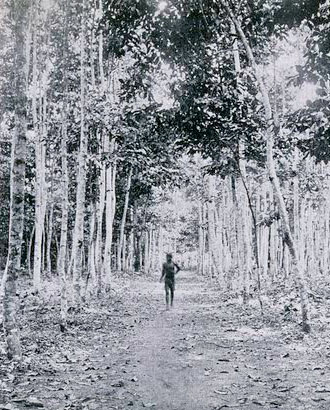
Community rubber plantation - Benin city, 1911. Wikimedia Commons
Bendel State, midwestern Nigeria. Agriculture was the mainstay of the economy. Rubber, timber, and palm oil and kernels were cash crops. Mineral resources included limestone and lignite.
BORNO STATE
Fikayel (a ward in Bayo Local Government Area of Borno State)
Ladi-Bida (Local Government Areas)
Maiduguri (state capital, major commercial and industrial city and principal trading hub for north-eastern Nigeria)
Ngelzarma (located in the region of Yobe, a Local Government Area)
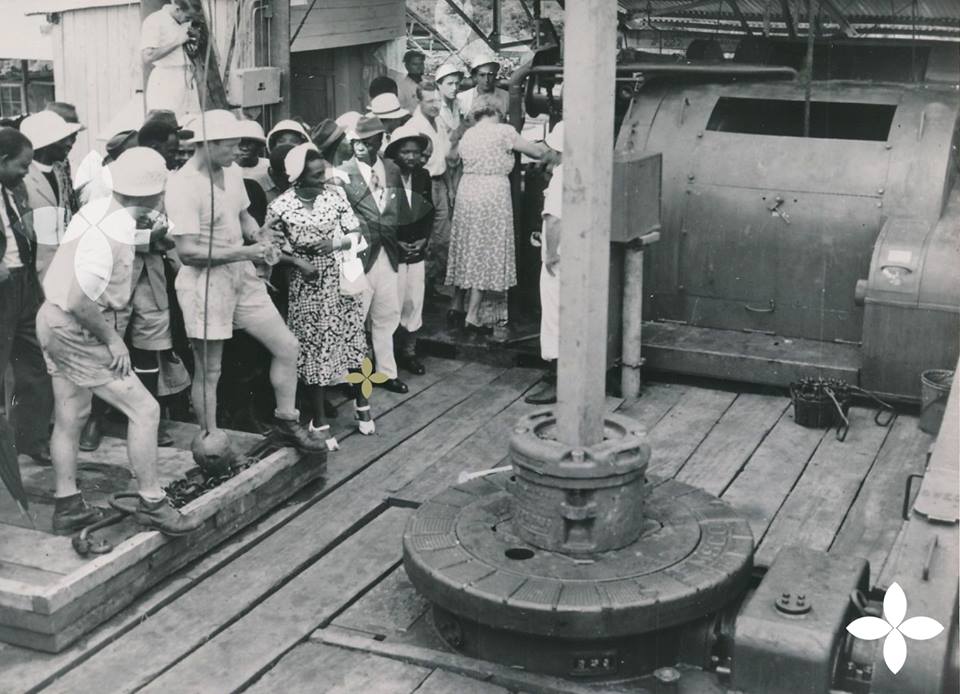
Borno State, north-eastern Nigeria. The growing of sorghum, millet, peanuts (groundnuts), onions, corn (maize), sesame, acha (“hungry rice”), cotton, and indigo and the herding of cattle were the chief occupations, with fishing significant around Lake Chad.
GONGOLA STATE
Yola (state capital, later capital of Adamawa state created in 1991 from part of Gongola state)
Gongola State, a former administrative division of Nigeria and a north-eastern state. The primary activity involved farming and rearing (cattle, goats, sheep). River fishing was also an important activity. Peanuts and cotton were exported, as were cattle, dyed skins, and gum arabic. A timber industry was at Yola.
IMO STATE
Aba (major commercial city, later commercial centre of Abia State created in 1991)
Ohafia (centrally located village, later a town in local government area after Abia State was created in 1991)
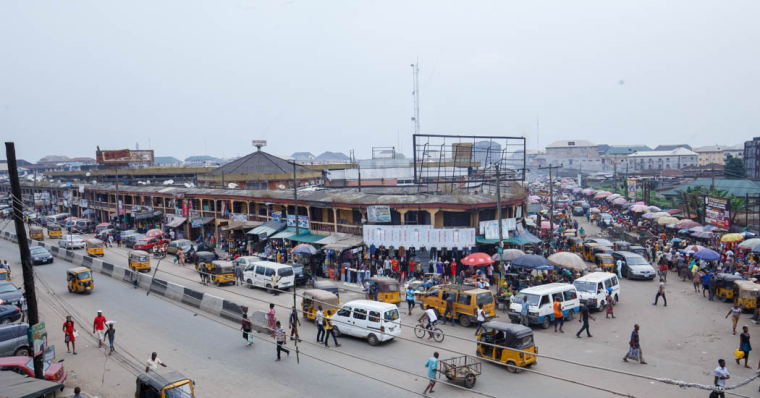
Imo State, southern Nigeria and one of the chief onshore petroleum-producing areas in Nigeria; other mineral resources included coal and natural gas. The population was mostly engaged in agriculture; yams, taro, corn (maize), rice, and cassava (manioc) were the staple crops, and oil palm was the main cash crop.
KADUNA STATE
Kaduna (major commercial city and state capital, Nigeria’s largest textile-manufacturing centre with other major industries including an oil refinery. Also, an Inland Dry Port)
Zaria (an industrial centre, processing tobacco and cotton seed and manufactures textiles, bicycles, and printed matter)

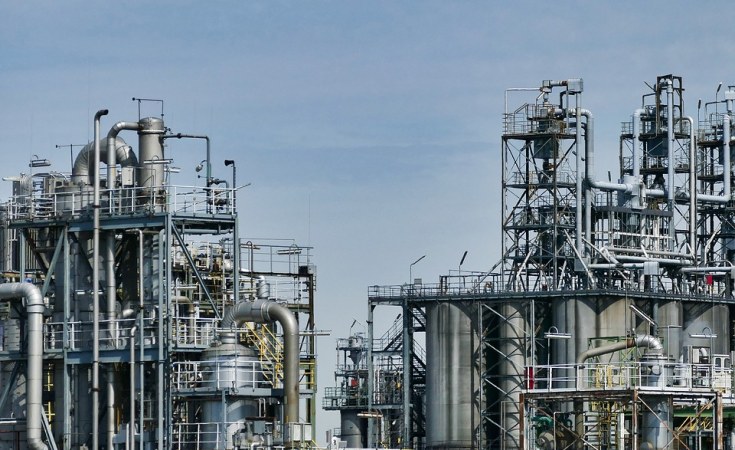
Kaduna State, north-central Nigeria. It produced cotton and peanuts (groundnuts) for export. Tobacco was a major cash crop around Zaria. Kaduna city, the state capital, was a textile-manufacturing centre and had other major industries including an oil refinery. Kaduna also had an Inland Dry Port, that handled import cargo from Lagos seaport-Apapa/Tin Can Island port, through the railway or road and also export goods through the same channel.
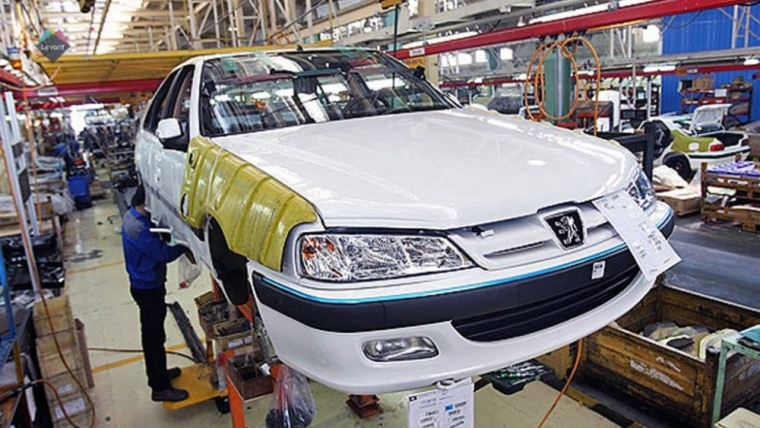
KANO STATE
Kano, main branch (state capital, major commercial city and industrial centre)
Bello Road, Kano
Birniwa, Kano
Kumar Asabe, Kano
Tofa
Yar Gaya
.png)

Kano State, northern Nigeria. Kano, the state capital, was one of the largest cities in Nigeria, and a major route of the trans-Saharan trade. Peanuts were a major export commodity. The second most important traditional export was hides and skins. Apart from light manufacture such as textiles, heavy industries manufactured asbestos, cement, concrete blocks, metal structural products, bicycles, automobiles, trucks, and chemicals.
KWARA STATE
Kaima (town and local government area)
.png)
Kwara State, west-central Nigeria. Most of of the population were engaged in farming important staple crops and cash crops. Cotton and tobacco were also grown.
LAGOS STATE
Lagos main branch - Apapa (major commercial and financial centre, Lagos Port Complex, containing a number of ports including Tin Can Island Port and terminals)
Agbowa Ikosi, Lagos (an ancient town)
Broad Street, Apapa (on Lagos Island, Lagos, a commercial hub in one of the city's central business districts)
Ilupeju, Ikeja (often referred to as "Indian Village," located in the central area within Lagos mainland)
Ketu, Lagos (town, with one of the largest marketplaces in Nigeria)
Marina, Lagos (one of central business districts in Lagos)
Tawafa Balewa Square, Lagos (situated in Lagos city centre)
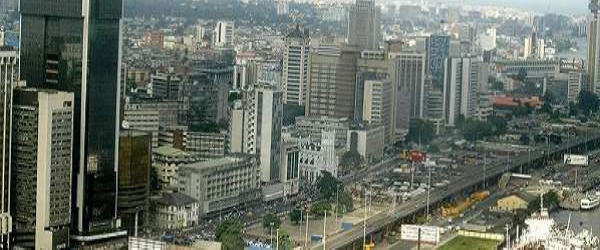
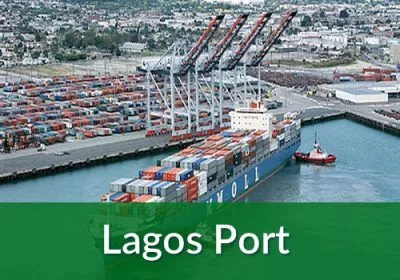
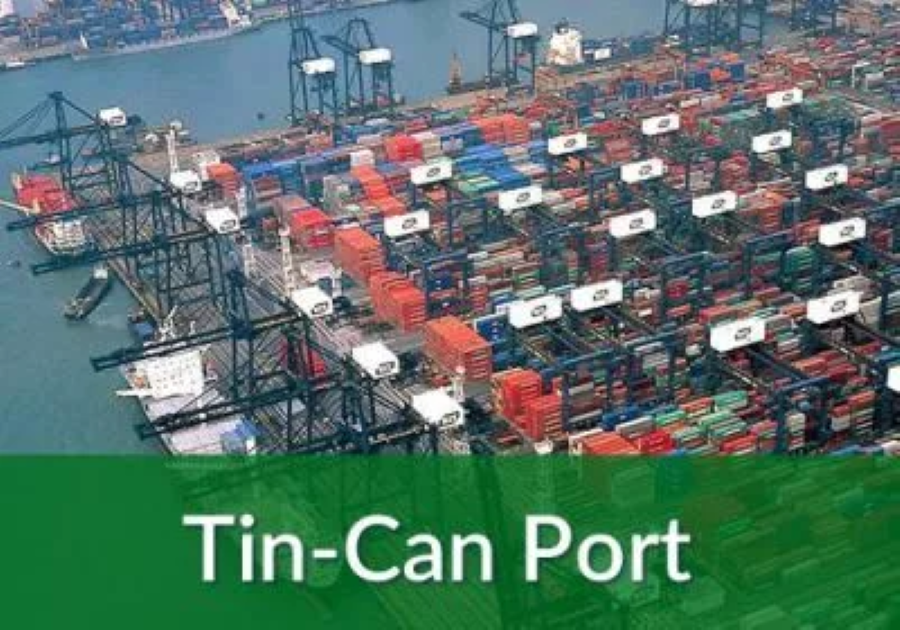
Lagos State, southwestern Nigeria. Lagos was the state capital and the federal capital of Nigeria until 1991 when it was replaced by Abuja. Lagos was a major economic centre of Nigeria and housed headquarters of most international conglomerates and commercial banks. The city continued as the unofficial seat of many government agencies. Two of the country's largest seaports - Apapa and Tin-Can Ports - part of the Lagos Port Complex, located in Lagos served as the principal outlet for Nigeria’s exports.
OGUN STATE
Ibogun-Egbeda
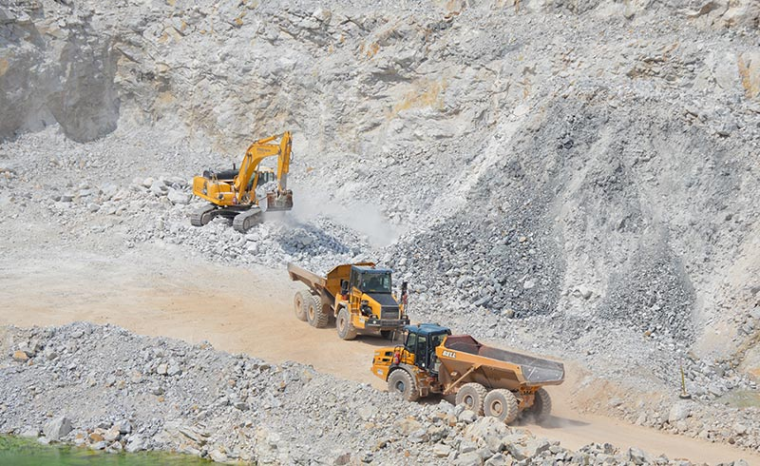
Ogun State, southwestern Nigeria. The major food crops included rice, maize, cassava, yam and banana. The main cash crops included cocoa, kolanut, rubber, palm oil and palm kernels. It also produced timber and rubber on a large scale. The state had extensive limestone deposits with prospects of establishing a large cement plant in the state.
OYO STATE
Ibadan (major commercial city)
Ilora
Oluponn
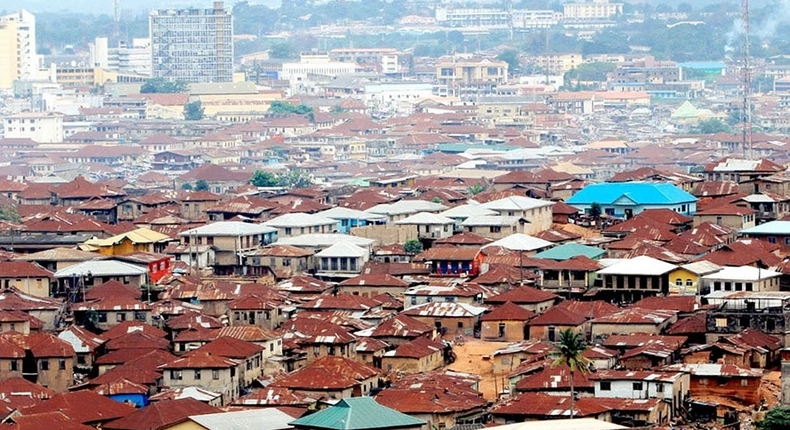
Oyo State, western Nigeria. Its economy was based chiefly on agriculture and handicrafts. Ibadan, the state capital, and second largest city in Nigeria, was a major trade centre for cassava, cocoa, timber, cotton, palm oil and rubber. Industries included a cannery, a brewery, a tobacco-processing factory, wood- and steel-furniture factory, and a motor-vehicle assembly plant.
PLATEAU STATE
Gidan Galadima (city)
Jos (major commercial city)
Pilgani, Jos (village town)
Plateau State, east-central Nigeria. It was the most important mining area in Nigeria and a major exporter of tin and columbite.
RIVERS STATE
Port Harcourt (state capital, major commercial city and major port)
.png)
Rivers State, southern Nigeria, comprising the Niger River and the Gulf of Guinea leading out to the Atlantic Ocean. Large deposits of crude oil and natural gas in the Niger River delta were the state’s important mineral resources. There were major offshore oil terminals and petroleum refineries at Port Harcourt, the state capital and one of the Nigeria’s largest ports and one of the country's leading industrial centres. The port, also known as Rivers Port Complex, was positioned strategically in one of the world's largest crude oil production regions.

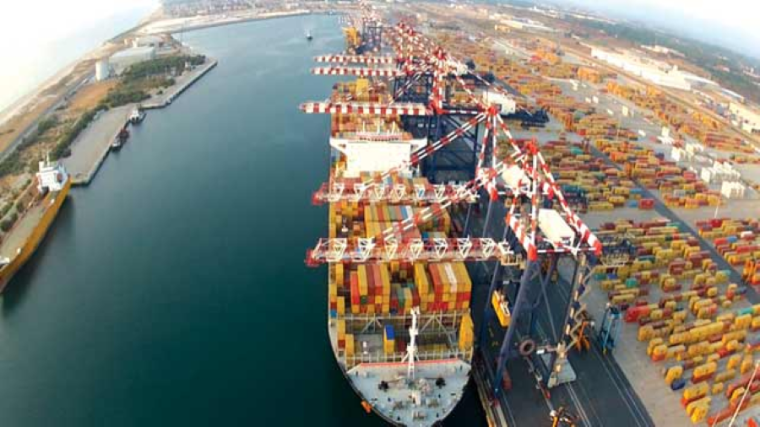
SOKOTO STATE
Sokoto city main branch (state capital)
Bakura (village town)
Chediya (Local Government Area)
Gusau (a major collecting point for cotton and peanuts (groundnuts) grown in the surrounding area, capital of Zamfara State after 1996
Illo (town, Local Government Area, after 1991 situated in Kebbi State created out of Sokoto State)
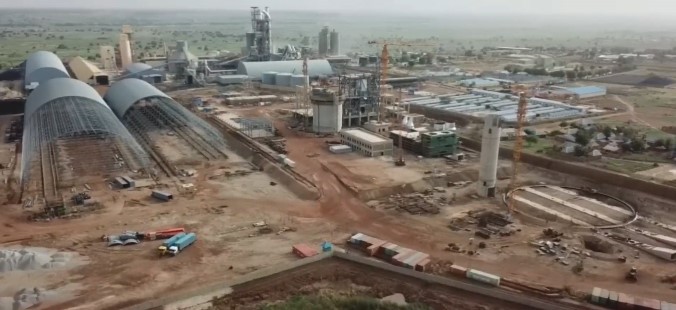
Sokoto State, extreme northwest of Nigeria, bordering with the Republic of the Niger. Sokoto, the state capital, was a major trade centre in leather crafts (a significant export), kola nuts, goatskins and sheepskins, cattle hides and camel hides, sorghum, millet, rice, fish, peanuts, cotton, onions, and tobacco. The state had a large cement plant with access to the limestone deposits.
BCCI NIGERIA
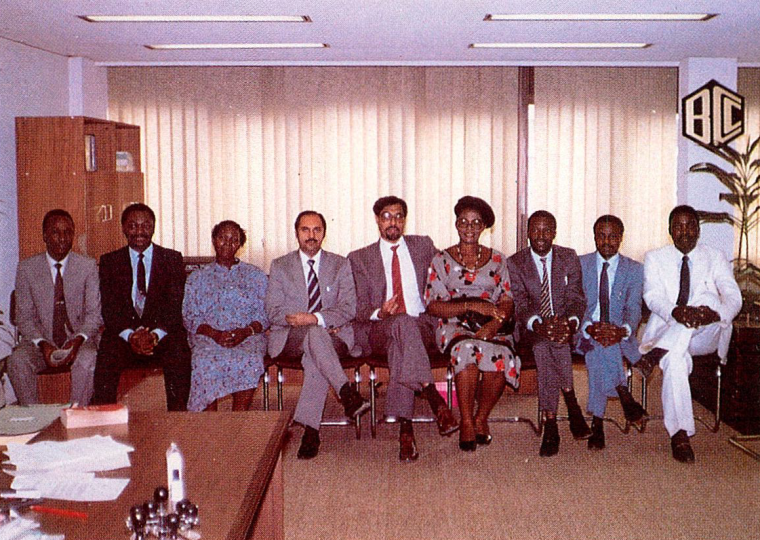
Evolution in Nigeria
BCCI Nigeria formed two committees in Lagos, the then capital of Nigeria, to help with the growth of BCC in the most important country in West Africa: the Lagos Area Management Committee and the Lagos Area Marketing Committee.
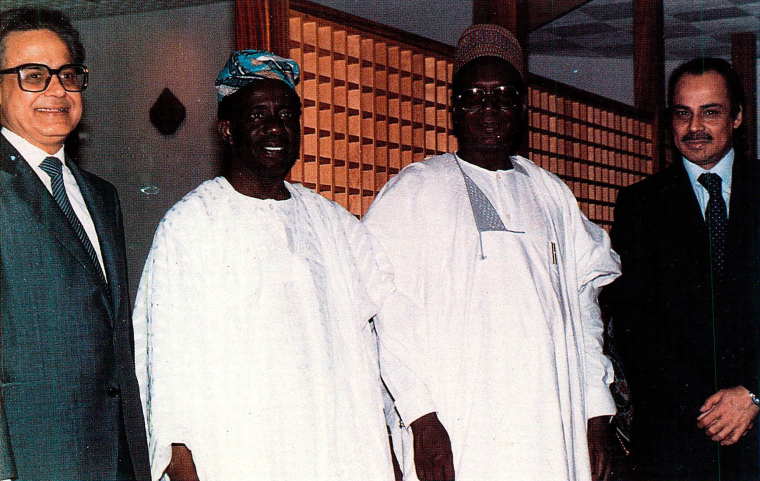

Former US President Mr Jimmy Carter and his wife Rosalynn Carter arrived in Lagos, Nigeria, on 29 July 1989, aimed at promoting Global 2000's programme to eradicate guinea worm disease by 1995. They were joined by Mr Swaleh Naqvi, BCC Chief Executive Officer from London for an international donors' conference, sponsored by Global 2000 and BCC, in association with the United Nations Development Programme (UNDP) and the United Nations International Children's Emergency Fund (UNICEF).
The conference was held at the Lagos Sheraton Hotel on 31 July 1979 and chaired by UNDP administrator and regional director for Africa Mr Pierre-Claver Damiba. The conference had the aim of drawing up plans and generation resources for the total elimination of the guinea worm scourge.
BCC was already extending financial backing to combat guinea worm scourge and create public awareness of this disease well before other international organisations came to the field.
Mr Naqvi, BCC Chief Executive Officer, told the assembled guests that the waterborne guinea worm disease threatened around 17 million Nigerians if timely action was not taken to eradicate it. He assured Global 2000 of BCC's continued financial support.
The well attended reception was also addressed by Mr Ahmed Raza, the new managing director of BCCI Nigeria, and Professor Olikoye Ransome-Kuti, Nigeria Federal Minister of Health.
The donors' conference itself was a great success, and handsome donations were received as a result. President Ibrahim Babangida donated N7.2 million (US$1 million) on behalf of the Nigerian Government, and BCC was committed to donation US$ l5 million a year for the next three years for projects in Uganda, Nigeria, Ghana and Pakistan.
After the conference. the Carters and Mr Naqvi called on the Nigerian President and visited the guinea worm infested village of ldiori in Ogun State.
On 1 August 1989, Mr Carter and his Global 2000 entourage, accompanied by Mr Naqvi, BCC Chief Executive Officer, proceeded to Ghana.
Financial Highlights
BCCI closure
On 5 July 1991 the Bank of England and other regulators in the west decided to freeze BCCI Group's assets and abruptly shut down BCCI's operations worldwide.
The priority of the governments and central banks in some countries was to protect their people and the local operations of BCCI continued in a different name after the assets and liabilities were acquired by private investors or another bank.
Despite this crisis created by the announcement in the West of BCC's abrupt closure, the government of Nigeria kept BCCI Nigeria open under the supervision of the Central Bank of Nigeria and the National Deposit Insurance Corporation. BCCI Nigeria changed its name on 12 July 1991 to the African Bank International with the Central Bank of Nigeria organising for Nigerians to buy out the BCCI's shareholding.
The BCCI Group majority shareholders considered the abrupt action by western central banks to shut down BCCI in 1991 was unjustified when they already had detailed discussions with the Bank of England and other regulators on a restructuring plan and would have injected further capital, if required.
In a 24-page report not made public but sent to some 60 central bankers worldwide, the United Nations Center on Transnational Corporations said that by simply shutting down the 70-nation banking network that financed international trade of $18 billion a year, the economic damage fell hardest on countries like Nigeria, Bangladesh and Zambia, where B.C.C.I. was an important institution. (New York Times, Feb 5, 1992)

